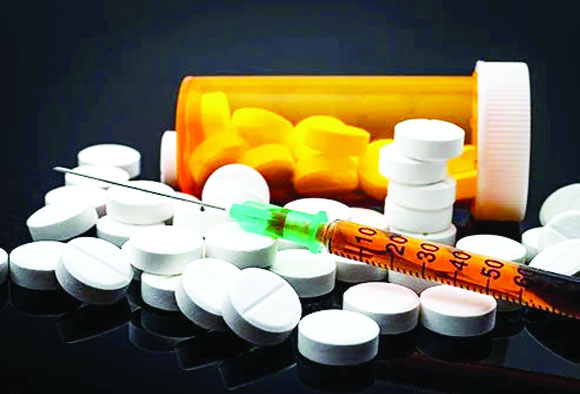Dr Abhishek Chowhan
Last few years has been particularly troublesome for the world. COVID-19 pandemic bought the world to standstill with the priority of the world as a whole changing to survival mode. In addition to the immediate health impact of COVID infection, the pandemic shook the world economically and socially and will continue to do so in foreseeable future. The economic and social disruptions caused by the pandemic are devastating: tens of millions of people are at risk of falling into extreme poverty, while the number of undernourished people, currently estimated at nearly 690 million, could increase by up to 132 million by the end of the year. Millions of enterprises face an existential threat. Nearly half of the world’s 3.3 billion global workforce are at risk of losing their livelihoods. If the pandemic was not enough the Ukraine-Russia war and the impending economic recession has added to the woes. In short, we are going through a humanitarian crisis. From warzones to refugee camps to communities torn apart by violence, people in all parts of the world are in dire need. A pandemic, a climate crisis, a food crisis, an energy crisis, and supply chain disruptions have increased suffering and taken us to the brink of global recession.
International Day against
Drug Abuse and Illicit Trafficking
As the world eagerly awaits a solution for the COVID-19 pandemic and its aftermaths, a solution to another global health crisis is still being sought after decades. Drug abuse and illicit trafficking have persisted through history as a humanitarian crisis, leading to the deteriorating health and untimely deaths of millions around the world. Beyond reducing the security of global health, drug abuse and illicit trafficking cripple economies and the economic power of users, in addition to exposing vulnerable populations to even greater risks. The 2020 United Nations Office on Drugs and Crime (UNODC) World Drug Report notes the use of illicit drugs has increased by 30% since 2009. Likewise, the production and trafficking of illicit drugs, such as heroin and synthetic drugs, are at record highs.
By resolution 42/112 of 7 December 1987, the General Assembly decided to observe 26 June as the International Day against Drug Abuse and Illicit Trafficking as an expression of its determination to strengthen action and cooperation to achieve the goal of an international society free of drug abuse. This year’s theme “Addressing drug challenges in health and humanitarian crises” has been aptly chosen to address the drug abuse issues in current scenario. Supported each year by individuals, communities, and various organizations all over the world, this global observance aims to raise awareness of the major problem that illicit drugs represent to society. With the #CareInCrises campaign, UNODC is calling on governments, international organizations, civil society, and all stakeholders to take urgent action to protect people, including by strengthening drug use prevention and treatment, and by tackling illicit drug supply.
Increasing trends of substance use in humanitarian crises can be attributed to several reasons. First, a situation of instability and inadequate rule of law leads to lack of proper border control and consequently new routes of trafficking and increased access to drugs. Additionally, when people who have already been under extreme stressful conditions gain access to drugs, they may use them to relieve stress or mental conditions such as depression and anxiety. Several reasons are given for using substances, including self-medication for pain and mental health problems, the stress of adapting to life in a new environment, and exposure to unfamiliar patterns of alcohol and other substance use. In humanitarian settings little attention is paid to substance use when other health, social and even other mental health problems are seen as more pressing. The substance use increases the burden on already overstretched mental health systems in post-conflict states.
Availability and access to treatment services in a humanitarian crisis is another challenging issue. Access to treatment and other services was already limited before the outbreak of COVID-19. Since then, access has become even more restricted as health systems have shifted focus to the deadly virus. It is estimated that only one in eight people with drug use disorders can access the treatment they need. This is called as treatment gap. The treatment gap per se is massive in substance use disorder but it widens during such crises.
Community-based strategies for addressing substance use disorder in humanitarian settings can be helpful in mitigating this crisis. Firstly, building community awareness and psychoeducation about substance use disorder is essential for improving help-seeking and treatment utilization. Community awareness also reduces stigma across multiple levels-community members, providers, policymakers-which often impacts acceptability of substance use interventions, allocation of resources, and political prioritization. International organizations can take proactive measures for advocacy and awareness-raising, especially at the level of policy-makers, including donors, for humanitarian agencies to enhance their involvement in the area of substance use in humanitarian and post-conflict situations. At the national level, Member States should prioritize development of services for substance use in humanitarian and post-conflict situations, adapt the available tools for these contexts, and promote research and evidence on the subject of substance use in humanitarian and post-conflict situations. Youth must be engaged in the process of designing and implementing solutions to prevent drug abuse and illicit trafficking. Such engagement must be sought in both grassroots and policy-based solutions.
In summary, addressing substance use requires a concerted effort involving multiple sectors and several levels of engagement. It is recommended that humanitarian efforts should include advocacy for policy and decision makers to include substance use in responses. More experience is required collectively on how best to respond to substance use among populations affected by humanitarian and post-conflict situations. Interventions need to be conducted and results disseminated. International donors should dedicate funds for research on substance use and its treatment in post-conflict and humanitarian settings, and a global forum for exchange of experience, ideas, information and evidence is required.
(The author is Faculty, Department of Psychiatry, Government Medical College, Jammu)


